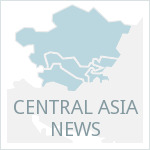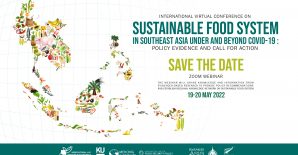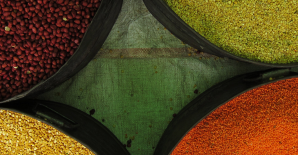News
ADB to Invest up to $40 Million in GGU Green Bonds to Upgrade Water, Sanitation in Georgia
The Asian Development bank has announced their intention to invest up to $40 million in green bonds, issued by Georgia Global Utilities (GGU) and Leading Asia’s Private Infrastructure Fund. ADB’s contribution is meant to provide additional support for providing up-to-date water supply and sanitation systems in Georgia’s urban areas. Much of ADB’s contribution will be earmarked for capital expenditure within the water supply system. - Asian Development Bank
ADB to hand over 700 more ALVs to Uzbekistan
700 ventilators will be delivered to Uzbekistan from the ADB in the coming weeks, joining another 100 ventilators sent by UNICEF this month. The ventilators will provide much needed support for COVID-19 mitigation and treatment efforts as the virus continues to remain prevalent in the country. Both the number of new cases and deaths in Uzbekistan continue to rise, similar to other countries in the region. - kun.uz
Iran launches new corridor to Tajikistan and Kyrgyzstan
A new trade route stretching from the port of Bandar Abbas, Iran to Kyrgyzstan appears to be functioning, as the first two cargo trucks to make the journey have been sent. According to officials from the Islamic Republic of Iran Customs Administration (IRICA), the Kyrgyzstan-Tajikistan-Afghanistan-Iran (KTAI) corridor was established to serve as a short alternative route for sending goods from Iran’s southern ports to Central Asian countries. The IRICA claims that the KTAI will boost the countries’ economies while improving regional relations. - Asia-Plus
The EU announces Funding opportunities for Civil Society organizations in Tajikistan
The European Union has announced funding opportunities for civil society organizations in Tajikistan, with the main goals of supporting disabled persons and expanding opportunities for youth self-development, employability, and decision-making within communities. Applicants may request between €200,000 and 400,000, which will be drawn from a pool of €2,909,305 euros. Funding recipients will not be mandated to contribute finances from their own reserves. - Asia-Plus
EU provides €18.6 million grant to Tajikistan for construction of Sebzor HPP
The Ministry of Economic Development and Trade of Tajikistan and the German Development Bank have signed an €18.6 million grant agreement to continue building a hydroelectric power plant in the Gorno Badakhshan Autonomous Region. The same parties also signed a €1 million agreement to assist with combating COVID-19. Construction on the plant has been in progress since 2015. This particular plant is expected to meet the region’s requirements for exporting electricity to adjacent areas in Afghanistan. - Asia-Plus
Analysis & Related Information
COVID-19 Analyses: IFPRI Blogs
IFPRI is facilitating an ongoing blog series to discuss COVID-19 as it relates to food security and development at the global, regional, and country levels. Though some concern specific countries, the insights are applicable to others as the world collectively experiences the impacts of the pandemic. There are no new blog posts this week, but the rest are available through the link.
IFPRI Virtual Events
IFPRI has been hosting virtual events to discuss various issues related to food and agriculture policy. Videos like this will periodically be posted publicly after being streamed live, and will include presentations from researchers, discussion between researchers, and Q&A. While there will not be a new seminar this week, please visit the link to view past seminars. This week's seminar will be "Evolving effects of COVID-19 on poverty and food security: What are we learning from China". For registration information, please visit this link.
Time for a New—or Old—Development Finance Model
This analysis proposes two directions that development finance organizations should take if they want to remain effective. The first recommendation involves “moving forward” to a model in which development finance institutions should shift their focus from supporting firms to assisting governments with their industrial and infrastructure development strategies. The second recommendation is to “move back” by increasing profits through investment in richer middle-income countries and using those profits to support better provision of global public goods. - Center for Global Development
How fruit can boost economic development in Central Asia
Central Asia has great potential to become a lucrative fruit exporter, which can increase economic growth. However, Kyrgyzstan, Uzbekistan, and Tajikistan currently realize only ⅓ of their export potential for key fruit products in which they hold a comparative advantage. Formal markets in Russia and China represent the best opportunities for growth in Central Asia’s fruit production industry, but several challenges pose major hurdles for entry into those markets. Specifically, high food safety standards in those countries, as well as limited access to financial and knowledge resources among Central Asian farmers make it difficult for Central Asian fruit to become prominent in international markets. - World Bank Blogs
Publications & Reports
Attending kindergarten improves cognitive development in India, but all kindergartens are not equal
Dean, J., Jayachandran, S. University of Chicago & Northwestern University.
Development and utilization of water resources and assessment of water security in Central Asia
Wang, X. et al. 2020. Agricultural Water Management, Vol. 240.
Kazakhstan Economic Update – Navigating the Crisis
World Bank Publication. 2020. Washington D.C.: World Bank Group
Horrible Trade-offs in a Pandemic: Lockdowns, Transfers, Fiscal Space, and Compliance
Hausmann, R., Schetter, U. 2020. CID Faculty Working Paper No. 382. Center for International Development at Harvard University.
Impacts of a Large-Scale Agricultural Training Program in Armenia
Fortson, K. et al. 2020. Mathematica Publication.
International trade and the stability of food supplies in the Global South
d'Amour, C.B., Anderson, W. 2020. Environmental Research Letters.
Patterns of accumulation and social differentiation through a slow‐paced agrarian market transition: The case of post‐Soviet Uzbekistan
Lombardozzi, L. 2020. Journal of Agrarian Change. Early Online Version.
The politics of exporting higher education: Russian university branch campuses in the "Near Abroad"
Chankseliani, M. 2020. Post-Soviet Affairs.
Using the Mother Tongue in Foreign-Language Learning: Secondary School Students in Kazakhstan
Beisenbayeva, L. 2020. International Journal of Instruction, Vol. 13, No. 3, pp. 605-616.
Useful Links & Commentaries on Research Methods, Data & Publications
Measuring Domestic Resource Mobilization–Thoughts on a New Study by NORAD
Sanjeev Gupta & Mark Plant. 2020. Center for Global Development.
Eurasianet Central Asia COVID-19 Cases, Deaths, Policies, Tracker
Eurasianet. 2020.
Events & Announcements
Virtual Seminars on Applied Economics and Policy Analysis in Central Asia
IFPRI, Westminster International University in Tashkent, and the Lebniz Institute of Agricultural Development in Transition Economies (IAMO) will continue to host weekly seminars on topics related to applied economics and policy analysis in Central Asia. They will take place on Wednesdays, at 7:30am EST, 2:30pm Moscow, 4:30pm Dushanbe & Tashkent, 5:30pm Bishkek & Almaty. For subscribers, registration information will be sent on the Monday before each webinar. For more information and to subscribe, visit the link. This week's webinar will be hosted by IFPRI's Dr. Hiroyuki Takeshima . He will present "Agriculture-nutrition linkages at household level: findings from two recent studies in Tajikistan". You can register directly through this link.
Virtual AFE Seminar Series
A virtual seminar series organized by John List of the University of Chicago Department of Economics and Robert Metcalfe of Boston University's School of Business is being hosted weekly on Zoom. Each seminar will include a research paper presentation and Q&A, starting at 12pm EST on Wednesdays. Follow the link to view the full schedule of presenters and to sign up for invitations to the live seminar. Presentations will also by uploaded to a YouTube playlist.
Online Agriculture and Resource Economics Seminar
Dr. Marc F. Bellemare and PhD candidate Jeff Bloem will be hosting a weekly (Wednesdays, 11am CST) online seminar to discuss various research topics related to agricultural economics, nutrition, and food security. For example, the next seminar on July 29 includes a presentation of the paper, "Property Tenure and Determinants of Sensitivity to Price and Non-Price Conservation Instruments" presented by Bryan Pratt from USDA's Economic Research Service. Follow the link for registration information and a schedule of upcoming seminars.
Development Policy and COVID-19: eSeminar Series
The World Bank's Development Research Group is hosting an online seminar series for discussions on development policy as it relates to COVID-19. The seminars are completely public, do not require an application or sign-up, and will continue for the foreseeable future.
If you would like us to add your colleagues to our mailing list, please direct them to the following link.
The articles included in this news digest have been generated from online sources. Any opinions stated herein are not representative of, or endorsed by, the International Food Policy Research Institute or its partners.



